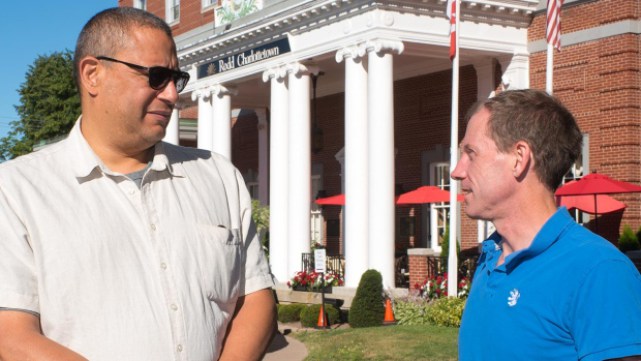Charlottetown’s own ScreenScape Number 2
On Atlantic Canada’s Fastest-Growing Companies
Canada’s eastern seaboard is home to some of the country’s most dynamic and successful firms, and the Atlantic Canadian companies
on the 2017 PROFIT 500 ranking of Canada’s Fastest-Growing Companies are proof.
The five Atlantic Canadian firms on this year’s ranking grew their revenues an average of 376% between 2011 and 2016.
Collectively they employed 236 full time-equivalent employees in 2016.
Here is the complete list of Atlantic Canada’s fastest-growing companies for 2017.
1. Supplement King Canada
PROFIT 500: No. 85
Growth (2011–2016): 856%
Revenue (2016): $5–10 million
Headquarters: Dartmouth, N.S.
What it does: Franchises a chain of stores selling health and fitness supplements
2. ScreenScape
PROFIT 500: No. 118
Growth (2011–2016): 591%
Revenue (2016): $2–5 million
Headquarters: Charlottetown, P.E.I.
What it does: Develops web-based software that controls digital displays
3. World Link Food Distributors
PROFIT 500: No. 272
Growth (2011–2016): 220%
Revenue (2016): $50–100 million
Headquarters: Goffs, N.S.
What it does: Sells seafood products from Atlantic Canada to wholesalers and retailers
4. Premiere Mortgage Centre
PROFIT 500: No. 382
Growth (2011–2016): 131%
Revenue (2016): $10–20 million
Headquarters: Halifax, N.S.
What it does: Brokers mortgages for home buyers and commercial clients
5. PQA (Professional Quality Assurance)
PROFIT 500: No. 481
Growth (2011–2016): 83%
Revenue (2016): $10–20 million
Headquarters: Fredericton, N.B.
What it does: Provides software testing and quality assurance consulting















You must be logged in to post a comment.